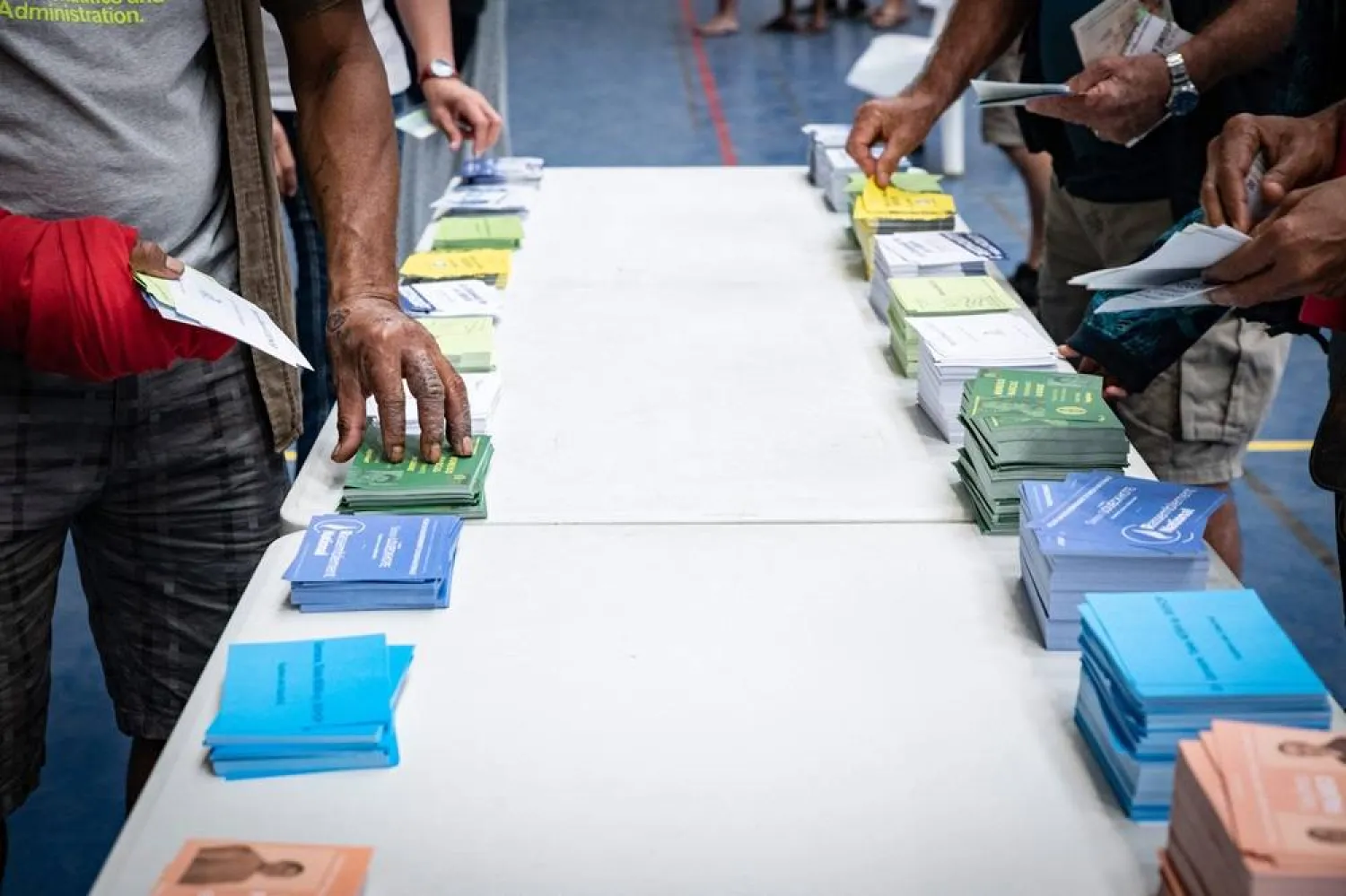Voters across mainland France cast ballots Sunday in the first round of early parliamentary elections that could put the government in the hands of nationalist, far-right parties for the first time since the Nazi era.
The two-round elections that wrap up July 7 could impact European financial markets, Western support for Ukraine and the management of France’s nuclear arsenal and global military force.
Many French voters are frustrated about inflation and other economic concerns, as well as President Emmanuel Macron’s leadership, seen as arrogant and out-of-touch with their lives. Marine Le Pen’s anti-immigration National Rally party has tapped that discontent, notably via online platforms like TikTok, and led in preelection opinion polls.
A new coalition on the left, the New Popular Front, also poses a challenge to the pro-business Macron and his centrist alliance Together for the Republic. It includes the French Socialists and Communists, the greens and the hard-left France Unbowed party and vows to reverse an unpopular pension reform law that raised the retirement age to 64, among other economic reforms.
There are 49.5 million registered voters who will choose the 577 members of the National Assembly, France's influential lower house of parliament.
Turnout stood at an unusually high 59% with three hours to go before polls close. That’s 20 percentage points higher than turnout at the same time in the last first-round vote in 2022.
Some pollsters suggested the high turnout could temper the outcome for the hard right National Rally, possibly indicating voters made an extra effort to cast ballots for fear that it could win.
The vote was taking place during the traditional first week of summer vacation in France, and absentee ballot requests were at least five times higher than in 2022.
The first polling projections were expected at 8 p.m. (1800 GMT), when final polling stations close. Early official results were expected later Sunday.
Macron voted in Le Touquet, a seaside resort in northern France. Le Pen also voted in the north, her party’s stronghold, but in the working-class town of Hennin-Beaumont.
Voters in Paris had issues from immigration to the rising cost of living on their minds as the country has grown more divided between the far right and far left blocs, with a deeply unpopular and weakened president in the political center. The campaign was marred by rising hate speech.
“People don't like what has been happening,” said Cynthia Justine, 44. “People feel they've lost a lot in recent years. People are angry. I am angry.” She added that with “the rising hate speech,” it was necessary to express frustrations with those holding and seeking power.
She said it was important as a woman to vote since women haven't always had that right. And “because I am a Black woman, it's even more important. A lot is at stake on this day.”
Macron called the early elections after his party was trounced in the European Parliament election earlier in June by the National Rally, which has historic ties to racism and antisemitism and is hostile toward France’s Muslim community. It also has historical ties to Russia.
Macron's call was an audacious gamble that French voters who were complacent about the European election would be jolted into turning out for moderate forces in national elections to keep the far right out of power.
Instead, preelection polls suggested that the National Rally is gaining support and has a chance at winning a parliamentary majority. In that scenario, Macron would be expected to name 28-year-old National Rally President Jordan Bardella as prime minister in an awkward power-sharing system known as “cohabitation.”
While Macron has said he won’t step down before his presidential term expires in 2027, cohabitation would weaken him at home and on the world stage.
A 64-year-old voter, Philippe Lempereur, expressed fatigue with politicians from the left, right and center and what he called their inability to work together on issues like ensuring people have shelter and enough to eat. “We vote by default, for the least worse option,” he said. “I prefer to vote than do nothing.”
The results of the first round will give a picture of voter sentiment, but not necessarily of the overall makeup of the next National Assembly. Predictions are difficult because of the complicated voting system, and because parties will work between the rounds to make alliances in some constituencies or pull out of others.
In the past, such maneuvers helped keep far-right candidates from power. But support for Le Pen's party has spread deep and wide.
Bardella, who has no governing experience, says he would use the powers of prime minister to stop Macron from continuing to supply long-range weapons to Ukraine for the war with Russia.
The National Rally has also questioned the right to citizenship for people born in France, and wants to curtail the rights of French citizens with dual nationality. Critics say this undermines human rights and is a threat to France's democratic ideals.
Meanwhile, huge public spending promises by the National Rally and especially the left-wing coalition have shaken markets and ignited worries about France's heavy debt, already criticized by EU watchdogs.
In the restive French Pacific territory of New Caledonia, polls closed earlier due to a curfew that authorities have extended until July 8.
Violence there flared last month leaving nine people dead, due to attempts by Macron’s government to amend the French Constitution and change voting lists, which the Indigenous Kanaks feared would further marginalize them. They have long sought to break free from France.
Voters in France’s other overseas territories of Saint-Pierre-et-Miquelon, Saint-Barthélemy, Saint-Martin, Guadeloupe, Martinique, Guyana and French Polynesia and those voting in offices opened by embassies and consular posts across the Americas cast their ballots on Saturday.









